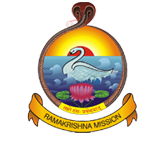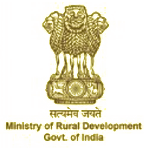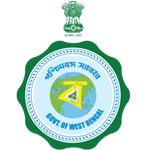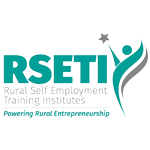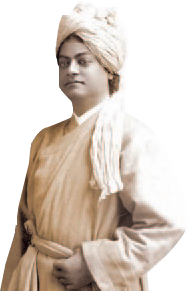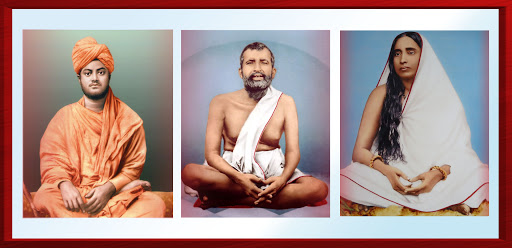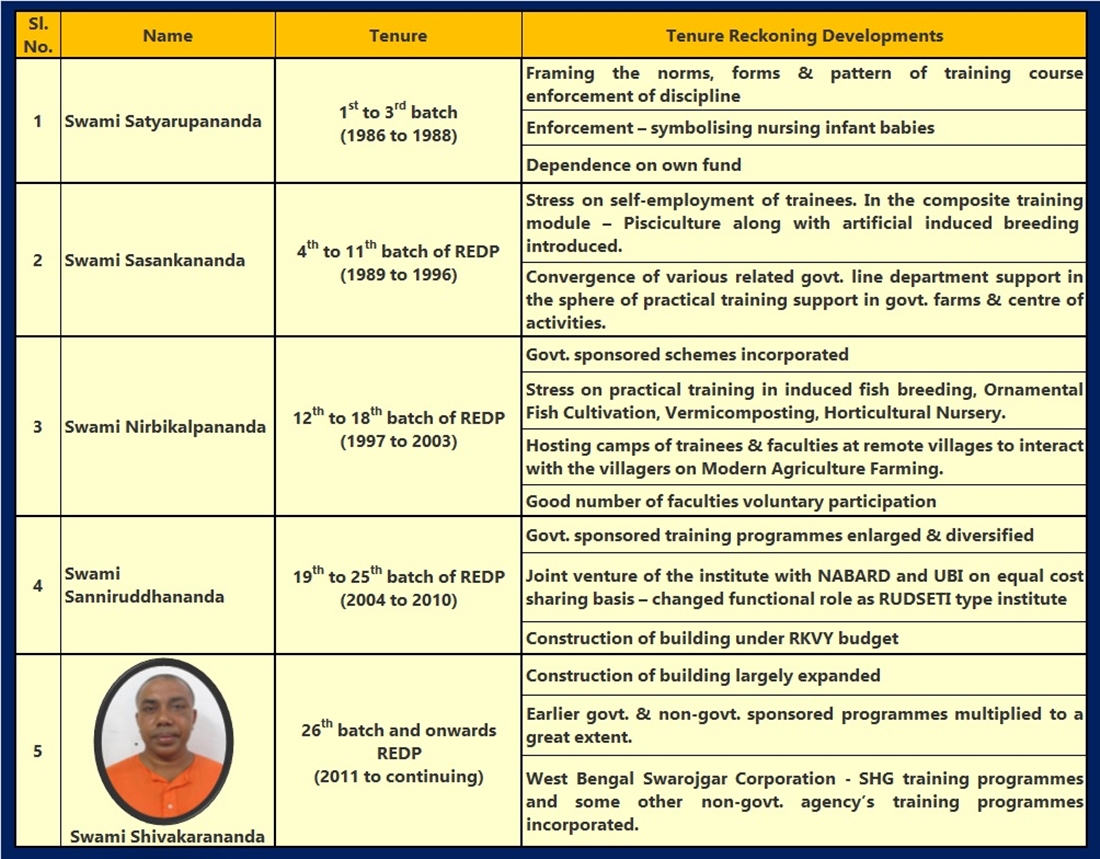Relationships are more important than life, but it is important for those relationships to have life in them. – Swami Vivekananda
Beginning of every venture owes to an inspiring past. Eventually it is indeed a need to tell the tale synchronising the thoughts before the foundation of the institute – Ramakrishna Mission Samaj Sevak Sikshan Mandir.
Dated back to 1978-79 when there was a devastating flood shattering the socio-economic gamut of rural Bengal and when all lifelines left in doldrums – Ramakrishna Mission was in its own way and with all might tried to restore the loss and rebuild the socio-economic fabric of rural poor communities to the extent possible. Resultantly vast areas of cultivable land in villages of Bally Dewangazi of Arambagh sub-division was covered with sand. Land became infertile and fallow. To get rid of utter sufferings of farmers it was decided to grow ground nut, gourd etc. on the sandy land. Accordingly twenty young boys were trained at Belur Math Saradapitha, Santi Bhavan (SEOTIC Building). 15 trained boys out of twenty boys successfully carried on village development work in the flood affected areas. They brought a significant change in the socio – economic fabric of the areas.
Then in course of process of their activities an idea was conceived in the mind of monks of Ramakrishna Mission headed by Swami Bireswaranandaji. That a stable and sustaining up-lift of the economy would be achieved if local youth are duly motivated for regeneration of economy of their habitants and if they are imparted vocational training on need-based trades for their settlement in self-employment ventures.
With passing of days & gaining experience and for furtherance of its prime objectives, this idea was brooded in their minds and ultimately translated into action through formation of Jayrambati & Kamarpukur Pallimangal Santhas in the year 1980.
At this juncture Sri G P Birla and Revered Swami Atmasthanandaji Maharaj while travelling on abroad tour and in course of discussion felt that there was need of training of unemployed youth as the development force for such activities in West Bengal. Sri Birla committed to financially support the same venture.
Subsequently it was also felt that a large section of rural youth of West Bengal was deeply motivated and inspired by Swamijee’s Call to Nation who were aptly ready to contribute their might towards socio-economic development of rural Bengal as well as their own spiritual uplift. But they were, for various reasons, not able to join in the Order as ‘Brahmanchari‘ and also found no other resourceful alternative for materialising their dream.
Against the above backdrop and as envisioned by Swami Vivekananda for regeneration of India comprehending oriental spirituality with occidental science & technology – the idea of foundation of Ramakrishna Mission Samaj Sevak Sikshan Mandir was conceived in the mind of revered monks. Objectives words to bring forth that vibrating section of youth under a comprehensive residential training programme with a view to train them up as dedicated force for rebuilding the wretched rural Bengal. Incidentally, some philanthropic organisations including GP Birla Foundation and GD Kothari Trust contributed lump sum fund helping a lot to create a corpus fund to pave the path towards foundation & running of the need-felt institution.
That was 13th January 1985 – a very auspicious day – the Birth Tithi of Swami Vivekananda – the foundation stone of Ramakrishna Mission Samaj Sevak Sikshan Mandir was ceremoniously laid down by revered Swami Bireswaranandaji Maharaj – the then President of Ramakrishna Math & Ramakrishna Mission, in a sprawling patch of land in close vicinity of Ramakrishna Math at Belur in presence of a large number of monks, devotees and local enthusiasts. Meanwhile construction of the office building premises and in subsequent phases the construction of buildings for residential accommodation of 50 trainees, the Principal & Faculties, spacious prayer hall, dining hall etc. was completed. Then the institute’s campus looked like an Ashrama – a holy centre of learning. The construction of the food processing building was a further addition to the Institute’s complex within a short span of period.
The training session of the first batch of the institute with a core residential training programme for one year duration was formally inaugurated by Swami Bhuteshanandaji – the then Vice President of Ramakrishna Math & Ramakrishna Mission on 12th January 1986 coinciding with the National Youth Day, under the aegis of Ramakrishna Mission Saradapitha, a branch centre of Ramakrishna Mission, Belur Math, Howrah.
A team comprising learned monks, educationists prepared a model training module in tune with the vowed noble objectives. Initially the training course was of one year duration. Subsequently it was condensed to 10 months. The course is entirely cost free and added with an incentive of monthly stipend of Rs.50.00 per student. However the stipend was withdrawn after a couple of years. The training module was unique in the sense that alongside emphasising on ethical development the trainees used to go through a very hard husky daily routine from dawn to ten ‘o’ clock night. But that was made so lively and inspiring through participation in prayer, physical exercise, theoretical & practical learning in agricultural & allied subjects, musical class & games.
Most notable feature was that in course of year-long residential training programme the trainees used to shake-off-their old habits of lethargy, idleness & non-doing and became a disciplined, humble and doing person as potential human resource.
But the greatest disappointment was felt when it was found that the youth coming to training were not interested to stand on their own feet through self-employment ventures. They preferred secure employment. Incidentally ten trainees of earliest batches were all absorbed in different centres of activities of donor agencies. The trend continued till the end of third batch. This revealed the weakness that they were trained more theoretically without getting village field experience and hand hold training. Practical training was felt needed based on natural resources to get them inclined and interested to self-employment ventures.
In its long journey of over two & half decades – development of the institute may be distinctly categorised into three phases:
The first phase ranges from 1st year to 3rd year. In this phase man making mission got supreme emphasis. The curricula, inter-alia, included life study of Sri Ramakrishnadev, Sarada Maa and Swamiji, value education, social work, community development, Indian Economics. Incorporation of techno-academic inputs and formulation of syllabus related to agriculture and allied sector were on the process of making.
During the second phase of development spanning over a period of 14 years from 1989 to 2003 the training module was gradually enriched and diversified based on modern technology and employment generating resource potentialities in agriculture and allied sectors. An integrated rural development laboratory was established demonstrating cultivation, soil analysis, mushroom cultivation, solar equipment manufacturing and uses, rural sanitation, safe drinking water, rural screen printing etc. from the 4th batch onwards. Visiting programmes of the trainees to profound activity centres governed by govt. and non-govt. agencies for practical training was coherently included in the schedule programme. In addition holding of hosting camps of trainees and faculties at remote villages to interact with the villagers on modern agricultural farming vis-à-vis traditional skill also constituted essential fibre of the compounded module of training. During the phase ten days residential training on Induced breeding of Fish at Institute of Freshwater Aquaculture, Rahara, one month training at Ramakrishna Ashrama Narendrapur for practical training on animal husbandry, were introduced. From 2000-01 one month long residential training on Veterinary treatment was conducted at Haringhata Govt. Dairy Farm.
Significant events taken place during second phase of its journey :
- Trainees from the states Bihar, Odisha, Andrapradesh and Madhyapradesh joined the training course during 1990-91.
- The first ex-trainees conference for 2 days was held in the year 1991 and continued as annual event.
- In the year 1991 a two-days long seminar was held on “Mass Employment Generation” at the institute being sponsored by the Department of Science & Technology, Govt. of India.
- In the year 1994 training programme for 5 days of 44 Sanitary Managers hailing from 22 development blocks of West Bengal, was organised at the Institute.
- During 1993-94 portable bio-gas plant was constructed. During this year a training course was conducted on practical application of solar- energy (Solar light, Solar cooker, Solar water heater)
- From 1994-95 the minimum educational standard of the trainees was fixed at Madhyamik to enable backward youth to avail the programme. Beforehand it was Bachelor degree.
- A fund under nomenclature “Self Employment Loan” was created by the institute. It was exclusively meant for providing start-up fund to the outgoing trainees for launching their entrepreneurship venture.
The 3rd state of development has a reckoning break from 2007 through introduction of short course non-residential training programme styled as “Skill Development Initiative (SDI)” alongside residential REDP training programme. In this year the institute entered a tie-up arrangement with NABARD and UBI on equal cost sharing basis. It was then construed as a ‘RUDSETI type institute’. Under this phase – the training facilities of the institute have been scattered and extended to remote district of West Bengal with a view to make the training facilities available to rural youth at close vicinity of their habitats. During this stage a large number of trainees pumping from 2 digit figure to 4 digit figure underwent training every year. They also got access to bank credit for their self-employment ventures. It is also noteworthy that there was a leap-forward change in infrastructural set-up. Construction of three storied building with 10,000 sq. ft. covered space gradually came into shape under grant assistance of RKVY from the Department of Agriculture, Govt. of WB. The building is fully equipped with all sorts of facilities for conducting residential training programme for more than 120 trainees at a time.
Notwithstanding the stages of development the institute increasingly enjoyed grand privilege in getting highly qualified faculty support of wide range disciplines throughout its journey
Turning events starting from 3rd stage of journey specifically articulated :
- In the year 2007-08 (17th March 2008) the institute entered into a tie-up with UBI (United Bank of India) and NABARD (National Bank for Agriculture & Rural Development) to act as a RUDSETI (Rural Development & Self Employment Training Institute) type institute for conducting various training programmes under joint venture of three organisation on equal cost sharing basis.
- Core training programmes of 10 months duration renamed as REDP (Rural Entrepreneurship Development Programme), subsequently conjoined with various employment generation off-campus training programmes of short duration scattered in various districts of West Bengal which are nomenclatured as SDI (Skill Development Initiative)run coherently. SDI programmes on various trades in farm & non-farm sectors – sponsored by various agencies viz. Central & State Govt., NABARD, UBI & Agril. Dept. etc are generally non-residential.
- It further entered into a new phase in the year 2011-12 when this institute ranked grade “A”, based on the evaluation of the performance. In 2013-14 a team guided by MoRD evaluated the RSETI programme for the year 2012-13 on 13th July 2013. According to that evaluation Samaj Sevak Sikshan Mandir was awarded 3rd best among all RSETIs in India by the Ministry of Rural Development (MoRD), Govt. of India vis-à-vis NATIONAL ACADEMY OF RUDSETI (NAR) on the basis of its performance being graded “AA”.
All along Post-Training Support Service:
Very close relation develops between the trainees and the institute which makes regular follow-up programme much easier. Ex-trainees maintain close contact with the institute and all possible post-training support services are provided to them. They visit the institute as and when required and consult with specialists of different subjects regarding various problems encountered by them in implementing their entrepreneurship ventures. Reciprocally resource persons pay occasional visits to the respective villages. Necessary arrangements for financial assistance by way of self-employment loan and linkage with bank credit facilities have been made for the ex-trainees for undertaking different self-employment enterprises.
Monk Principals of the Institute :
